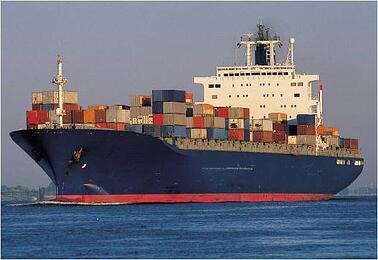South Korea May Oppose P3 Despite U.S., Europe, & China Decisions
The P3 approval saga continues.

The P3 Network—yes, the triumvirate of Maersk, Mediterranean Shipping Co., and CMA CGM combining their operational forces to dominate the world of international shipping… Okay, that sounds a little overly dramatic, but is not that far from the truth. What was I saying? Oh yeah, the P3 Network got a step closer to reality last week.
In case you don’t know what this whole P3 thing is, here’s a real fast sum up of the P3 Network from the Journal of Commerce (JOC):
The P3 alliance… is operational only, so there will be no joint marketing, sales or discussion of rates. The P3 will control 42 percent of Asia-Europe capacity, 24 percent of trans-Pacific capacity and 40 to 42 percent on the trans-Atlantic, according to the FMC.
Having already received approval from the U.S., last week the P3 Network cleared the hurdle of European approval.
JOC reported, “The European Commission said… it hasn’t found any anti-competitive issues with the proposed P3 Network, giving the vessel-sharing agreement involving the three largest global container lines safe harbor on the continent.”[1]
Not everyone agrees with that assessment. Not surprisingly, there’s opposition from competing carrier lines. Opposition that could actually be influential in creating an obstacle to a full P3 approval comes from Hanjin and Hyundai.
The P3 Network still needs to get approval from China and South Korea. The assumption has been that South Korea would just follow suit if China approves the P3 Network. But now, largely because of the fear that Hanjin and Hyundai—the two largest container lines of South Korea—won’t be able to compete, South Korea’s approval may not be a given even if everyone else approves.
The Korea Fair Trade Commission (KFTC) is considering the P3 application from Maersk, Mediterranean Shipping Co., and CMA CGM, but JOC reports:
Strong objection to the alliance was made by the Korean Shipowners’ Association, whose members include Hanjin and Hyundai, which submitted a petition to the KFTC on March 3, claiming the P3 Network restricts competition and violates the Fair Trade Act. The group’s objections underscore the idea that allowing the three largest carriers to pool their largest vessels in a massive vessel-sharing agreement will put them in an advantageous position relative to smaller carriers unable at least currently to deploy ships of similar size.[2]
But there is no real sign yet of a decision from South Korea on this alliance from the world’s three largest shipping container carrier lines.
On the other hand, it looks like China is going to decide in favor of approving the P3 Network.
The Wall Street Journal reports that China is expected to follow suit with the U.S. and Europe in approving the P3 Network:
Chinese regulators are poised to give the green light to a giant shipping alliance between the world’s three biggest container operators this month, according to people familiar with the matter, a move that would allow the alliance to start operating as early as the Fall….
Maersk Chief Executive Nils Andersen told The Wall Street Journal late last month the company hadn’t received any negative feedback in its talks with Chinese regulators, suggesting to the company that the review was going smoothly.[3]
The P3 Network has been controversial. Some think, as the P3 members say, that the alliance will ultimately be good for shippers, improving service. Others worry that the P3 members will have too much control on the market, competition will shrink, and shipping rates will rise.
What are your thoughts on the P3 Network? Share in the comments section below.
![]()
Source: Shipping

